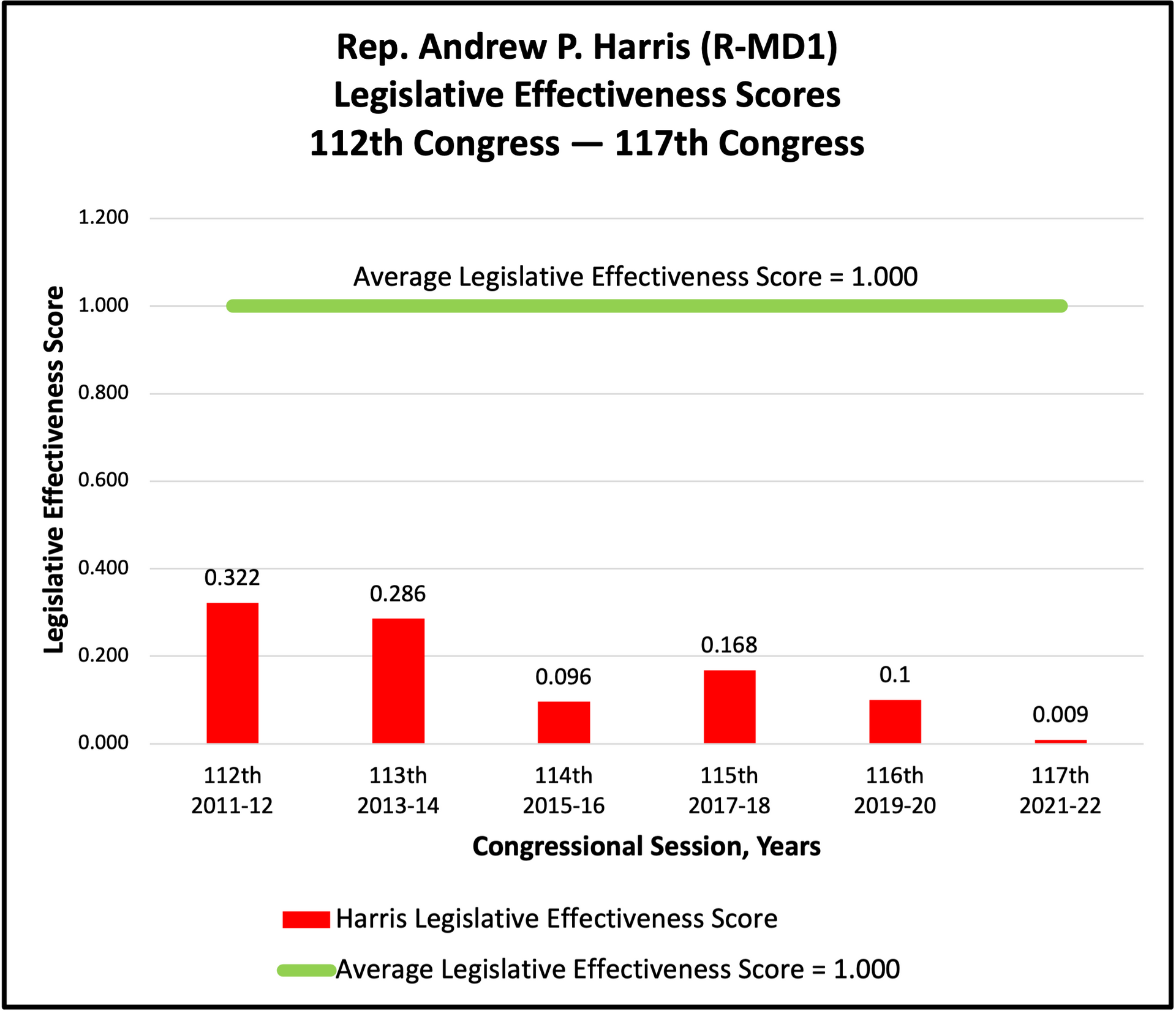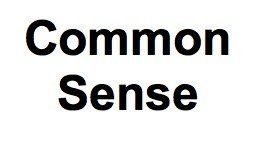“Dr. No” is also “Dr. Below Expectations”

Maryland’s First Congressional District does not have high standards for its elected congressman.
Rep. Andrew P. Harris (R-MD1), fringe-right MAGA disciple, election denier, and Freedom Caucus member, has been in the House of Representatives since 2011. He is well known across the Eastern Shore for having sponsored and passed only a single bill in all that time — HR 4913 — to re-name a post office in Salisbury. That was in 2018. Because of his haste to obstruct any positive legislative agenda advanced by Democrats, Harris is nicknamed “Dr. No.”
So how does Harris compare with his fellow House members in terms of advancing his legislative agenda in Washington?
The Center for Effective Lawmaking — a joint initiative of Vanderbilt University and the University of Virginia — looks at this question of legislative accomplishment. The center’s research uses a data-driven approach to study the success with which each member of Congress advances bills through the legislative process and into law.
The center’s legislative effectiveness scores are based on a combination of 15 metrics regarding the bills that each Congress member sponsors, how far those bills move through the lawmaking process, and how substantial their policy proposals are.
Sponsored bills are categorized as substantive and significant, substantive, or commemorative. The commemorative category would include renaming a post office.
The scale for legislative effectiveness (LE) starts at 0. The average House member has a score of 1.000.
A legislator is also compared against members of the same political party with the same level of seniority and committee chair status; within these groups benchmark scores are calculated. A legislator is then categorized as above expectations, meets expectations, or below expectations, based on the comparison to the appropriate benchmark score.
The latest data are from the last session, the 117th House (2021-22).
In that session, Rep. Don Bacon (R-NE) had the highest score of all Republicans — 6.137 — making him the highest scorer out of 222 Republicans. He sponsored 49 substantive bills, 16 of which became law.
On the Democratic side, Gerald Connolly (D-VA), had the highest score out of 232 Democrats, at 7.142. He sponsored 48 substantive bills (four became law) and three substantive and significant bills, one of which became law.
In Maryland, the highest scorer of our seven Democratic congressmen was David Trone (D-MD6) with a score of 2.576, making him 27th out of 232 Democratic congressmen. He sponsored 39 substantive bills, four of which became law.
And then there’s Andrew P. Harris (R-Md-01), our state’s lone Republican congressman. His score for the 117th House is 0.009, ranking him 216 out of 222 Republican congressmen. Harris’s lone sponsored substantive bill went nowhere; after its introduction, it was never taken up in committee.
Harris’s bill was HR 6060, the Conscience Protection Act of 2021. This bill would have given religious exemption to health care workers who don’t want to assist with abortions.
In terms of legislative effectiveness, Harris scored below expectations.
Nationally, there are eleven congressmen who scored 0.000 or 0.009 — 10 are Republicans. Fun fact: one of them is Jim Jordan (R-OH).
The question is: Given Harris’s paltry, almost non-existent legislative record, why do his constituents keep reelecting him?

Source: Center for Effective Lawmaking
Jan Plotczyk spent 25 years as a survey and education statistician with the federal government, at the Census Bureau and the National Center for Education Statistics. She retired to Rock Hall.
Common Sense for the Eastern Shore







